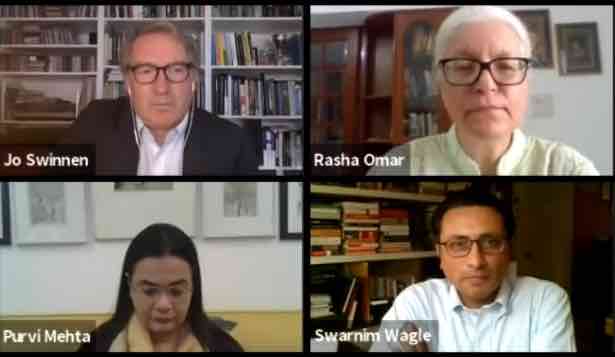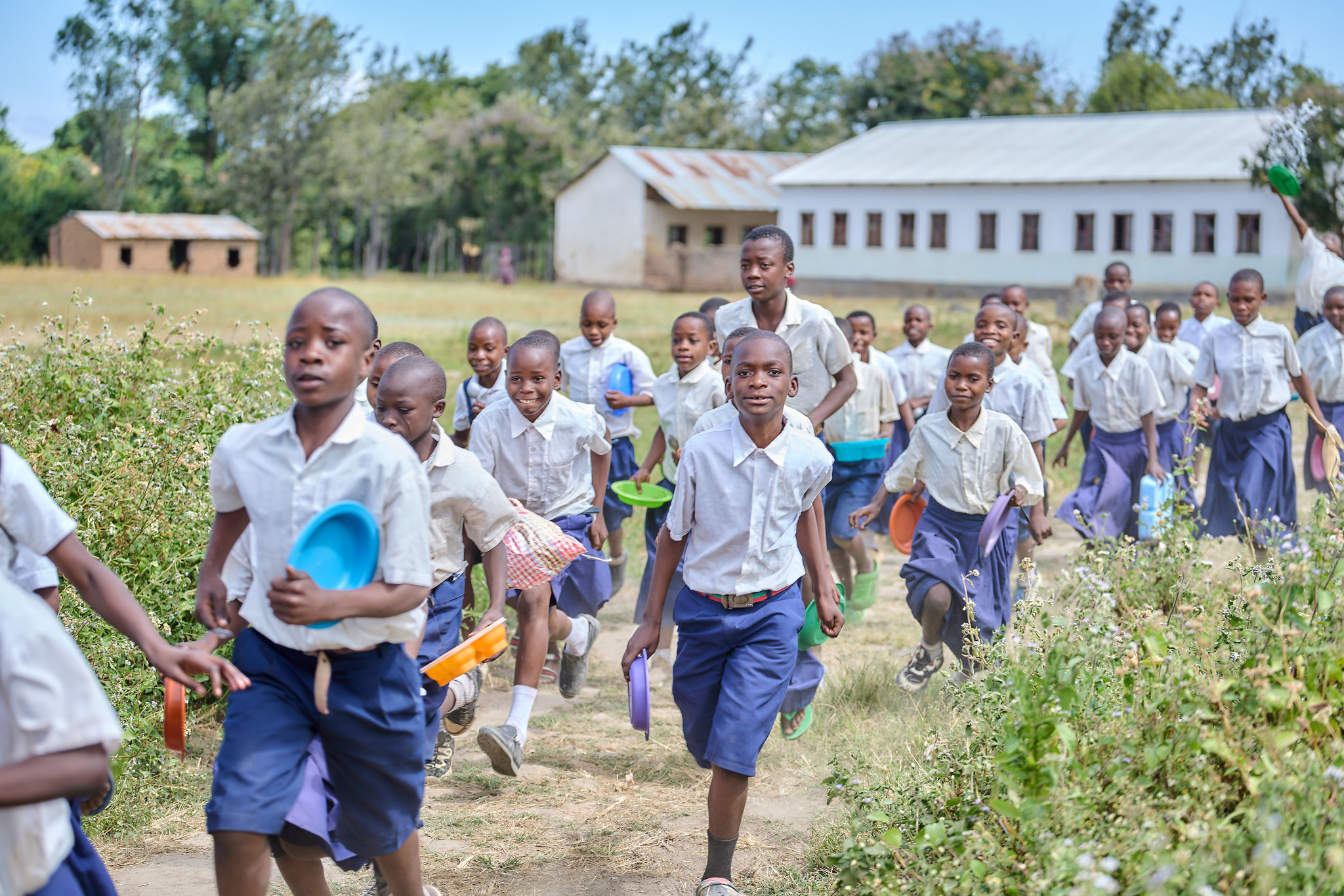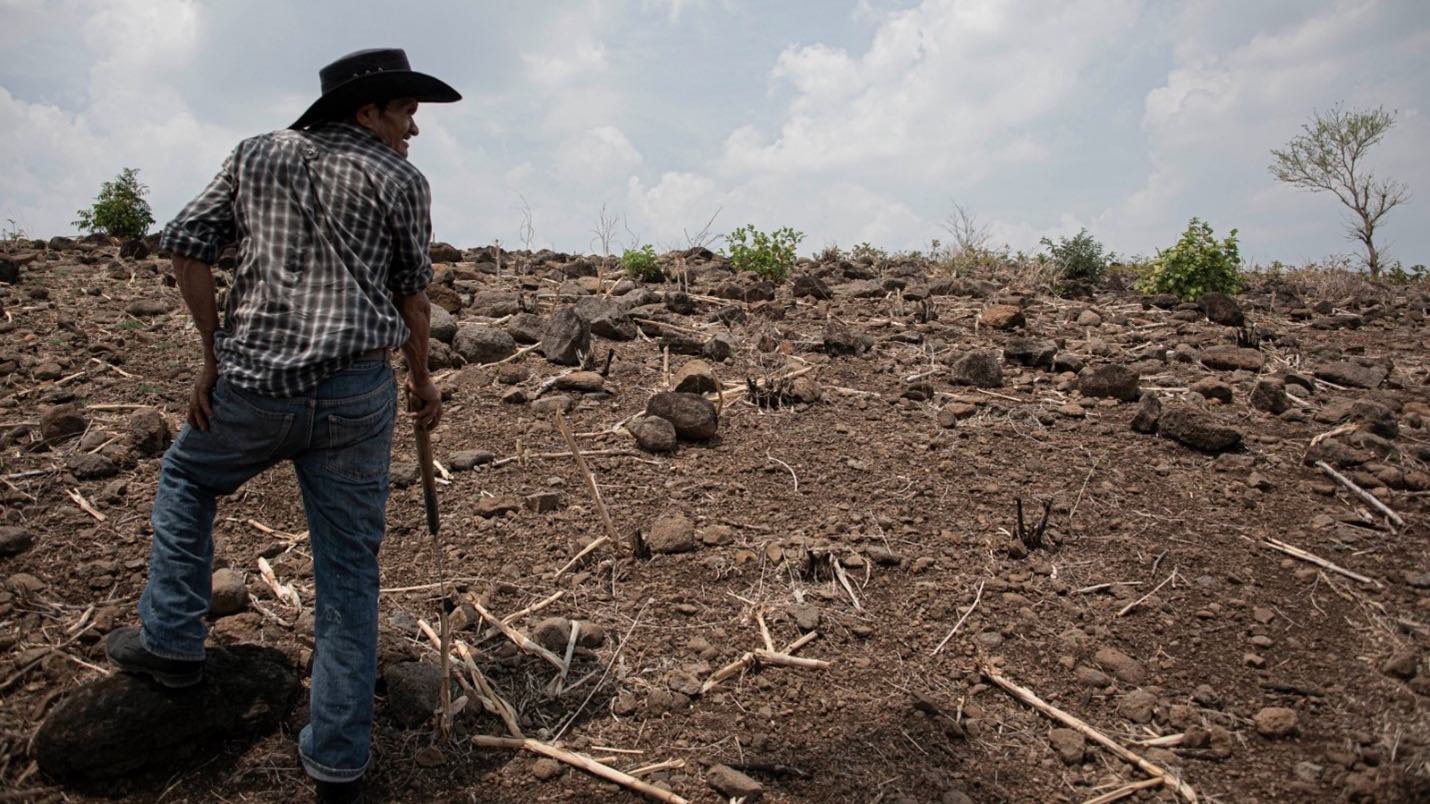In South Asia, the COVID-19 pandemic has triggered the largest disruption of livelihoods in history, affecting over 1.7 billion people. The region faces a severe economic contraction that is likely to reverse the recent pace of improvement in social and economic well-being. Building more inclusive food systems will be key to supporting vulnerable populations.
To address many of the long-standing issues underpinning food insecurity and poverty, IFPRI-South Asia, the Indian Council of Agricultural Research (ICAR), and the Trust for Advancement of Agricultural Sciences (TAAS), hosted a virtual launch of IFPRI’s 2020 Global Food Policy Report (GFPR) on July 6, presenting its highlights in a South Asian context.
“Building an inclusive food system is not only a matter of economics but also has a moral imperative,” said IFPRI Director General Johan Swinnen. “An inclusive food system is a social value proposition, as it has the potential for integrating the poor and marginalized into food supply chains, enabling them to escape poverty, improving nutrition, and thereby, reducing national and global inequalities.”
The GFPR highlights the central role that inclusive food systems play in meeting global goals to end poverty, hunger, and malnutrition, and offers recommendations for four marginalized groups: Smallholders, women, youth, and conflict-affected people. The report also provides analytical case studies of national food system transformation in several countries, including Bangladesh and Ethiopia, and advice on this process for different regions worldwide.
“Can we leave food systems to the markets forces alone?” asked IFPRI-South Asia Director Shahidur Rashid, presenting highlights of the report’s South Asia chapter. “We simply cannot because we know the invisible hands of markets are incapable of ensuring a food system that is efficient, sustainable and inclusive.”
He added, “In South Asia we need to shift our thinking from feeding the poor with cereals to feeding the poor with safe and nutritious food, which calls for the introduction of fortification in safety nets and biofortification in agriculture.”
Rashid also emphasized the importance of integrating a food system approach into national agricultural research systems, developing infrastructure and human capital for effective food safety institutions, and investing in incentives for food industry development.
Regional perspectives
Experts from Bangladesh, Nepal, and India gave insights on regional aspects of inclusive food systems. They also highlighted how the COVID-19 pandemic is impacting the lives and livelihoods of people living in South Asia, leading to food and nutrition insecurity.
“The report is being launched timely, especially when we are grappling with a global pandemic. In South Asia, many people live below poverty line and are extremely vulnerable to the shocks of COVID-19. Estimates of the studies conducted in Bangladesh have shown that due to COVID-19, poverty level which used to be 24.3% have gone up to 35%,” said Fahmida Khatun, Executive Director of the Centre for Policy Dialogue in Bangladesh.
Sudha Narayanan, a Professor at the Indira Gandhi Institute for Development Research, shared some of the lessons learned from the COVID-19 lockdown in India. “The Indian food system is remarkably resilient, but it is extremely vulnerable with large sections of poor people,” she said, adding innovations to build more inclusion should focus on bringing nutritious and healthy food to the rural markets.
Swarnim Wagle, Chairman of the Institute for Integrated Development Studies in Nepal, outlined some of that country’s challenges. “I am suggesting a three-pronged approach for Nepal’s food systems. It is important to view food systems through the lens of incentives and revamp the subsidy regime, introduce well-targeted social protection programs, and there must be greater use of the digital tools for transfer,” said Wagle.
Nepal is a landlocked country, and investment in hard infrastructure will help to connect markets and farms. Investments in soft infrastructure are also essential for reducing child malnutrition and cognitive deficiencies.
Perspectives from development partners
Rasha Yousef Omar, India Country Director for the International Fund for Agricultural Development (IFAD), noted that UN Secretary-General António Guterres has also called for collective action to transform food systems to make them more equitable, sustainable, and resilient to foster better nutrition and health.
Omar shared insights from IFAD’s programs on inclusive food systems. “Women and youth can be included in the transformation of food systems through pro-poor organizations,” she said. “Our programs have shown that in India the best entry point for social inclusion are through self-help groups.”
Shorter value chains are also essential to maintain hygiene and safety measures to protect consumers health and to prevent the spread of COVID-19, she said.
“The report brings out the interlinkages with food, livelihoods and nutrition. It also highlights how the interdependence between farm and off farm have contributed to the resilient food systems,” said Purvi Mehta, Senior Advisor & Head of Agriculture with the Bill & Melinda Gates Foundation-Asia.
Bringing greater stakeholder inclusivity into the value chain is a shift from production-centric, monolithic growth, Mehta said, to a more market-driven, diversified agenda enabling a participatory approach.
Perspectives on agricultural science and technology
“In India, the Green Revolution would not have been possible without science and technology. But we should not live in the laurels of the past Green and Blue Revolution,” said TAAS Founding Chairman Raj Paroda.
The research agenda should be reoriented, Paroda said—to meet the needs of smallholders, to diversify the food system from a cropping to a farming system, and also to take into account post-production management, linking farmers to markets and providing added value to end users.
“The report has widened the definition of food systems,” said Ramesh Chand, a Member of NITI Aayog, the Indian government think tank. “Till date, the understanding of food systems in India and developing countries has been extremely narrow. We tend to focus primarily only on farming system, which is an aspect of the entire food systems itself.”
The Indian government has recently launched three major policy reforms focusing on inclusiveness, Chand noted. These include providing knowledge on modern farming and technology to smallholder farmers through public-private partnerships; relaxing laws that allow farmers to sell their produce outside the confines of their markets, and forming more than10,000 Farmer Producer Organizations.
“Comparison across countries based on specific parameters of health and nutrition is a challenging task because there could be a great deal of variation. The same yardstick cannot be applied to every country,” said Trilochan Mohapatra, Secretary of the Department of Agricultural Research and Education (DARE) and ICAR Director General.
Technology is crucial to reshaping inclusive food systems, Mohapatra said. But while technology can play the role of a leveler, he noted, it can also create disparities—and a great deal of work must be done to ensure that technology becomes an effective enabler to include women and youth in reshaping food systems.
Rebika Laishram is a Communications Specialist with IFPRI-South Asia in New Delhi.







